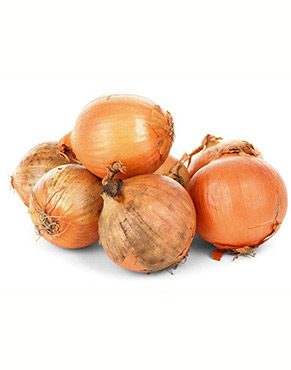How This Helps
Digestive problems | Heart Disease | Antimicrobial | Obesity | High Cholesterol | Cardiovascular disorders | Infections | Hair | Skin | Respiratory infections | Fever | Cancer | Diabetes | Arthritis | CKD
Instructions
Onions Nutrition Value:
Serving size: 100 g
Nutrients Amount
Energy 166 kJ (40 kcal)
Water 89.11 g
Carbohydrates 9.34 g
Sugars 4.24 g
Dietary fiber 1.7 g
Fat 0.1 g
Protein 1.1 g
Vitamins
Thiamine (B1) 0.046 mg
Riboflavin (B2) 0.027 mg
Niacin (B3) 0.116 mg
Pantothenic acid (B5) 0.123 mg
Vitamin B6 0.12 mg
Folate (B9) 19 μg
Vitamin C 7.4 mg
Minerals
Calcium 23 mg
Iron 0.21 mg
Magnesium 10 mg
Manganese 0.129 mg
Phosphorus 29 mg
Potassium 146 mg
Zinc 0.17 mg
Fluoride 1.1 µg
Source: USDA Nutrient Database
Science and Research
Cancer:
Onions are rich in organosulfur compounds that have shown remarkable results against many cancers like the colorectal, esophageal, prostate and stomach cancer. These compounds inhibit the tumor growth and mutagenesis and prevent the formation of free radicals. A daily serving of this vegetable has been recommended to decrease the overall risk for these cancers.
Cardiovascular Diseases:
The sulphur compounds in onions reduce the blood clotting capacity and prevent unwanted clumping of the blood platelets. These compounds also decrease the bad cholesterol levels and improve the function of the red blood cells. Moreover, onions are rich in flavonoids which provide many heart benefits.
Anti-inflammatory:
Onions have many health benefits that prevent the inflammatory diseases like allergies and rheumatoid arthritis. The unique sulfur compound, Onionin A, that is present in the onion bulb, inhibits macrophages, which trigger most of the inflammatory responses in the body. This can control chronic inflammation on a large scale. Moreover, quercetin, an antioxidant in onion, also prevents the oxidation of fatty acids in the body, resulting in decreased inflammation.







